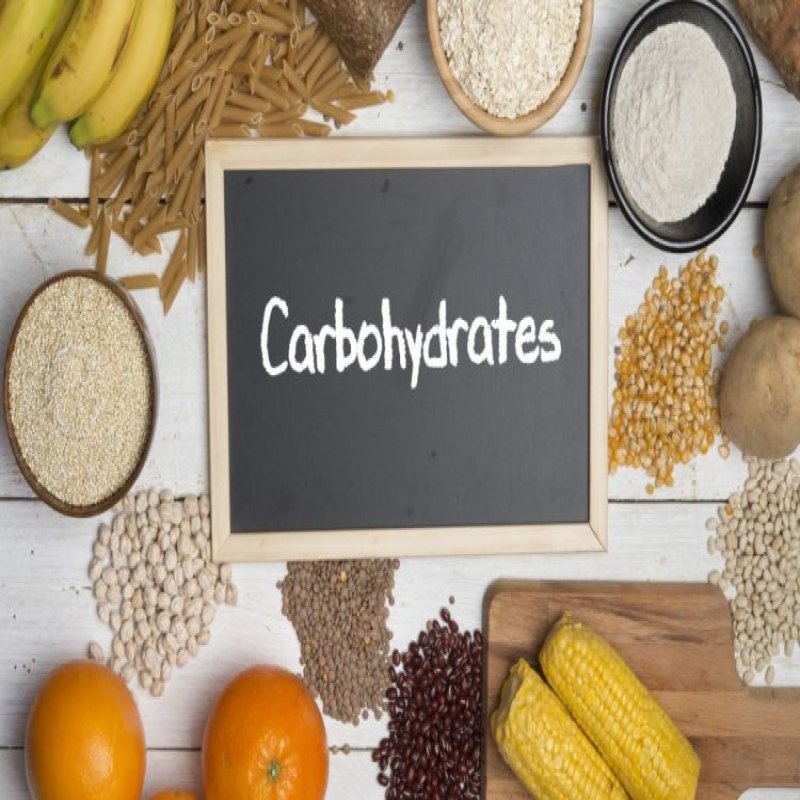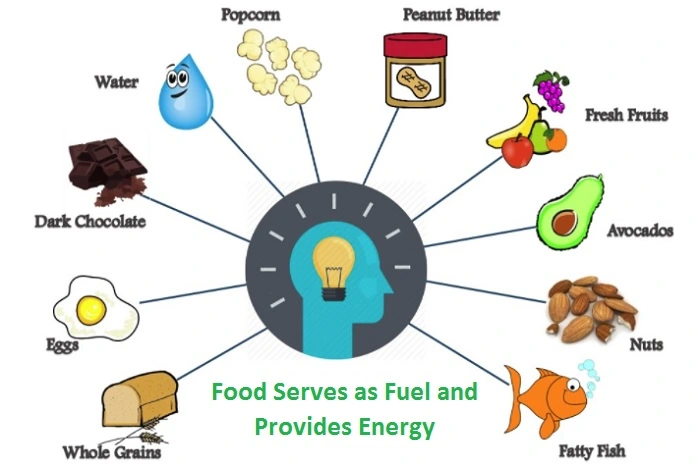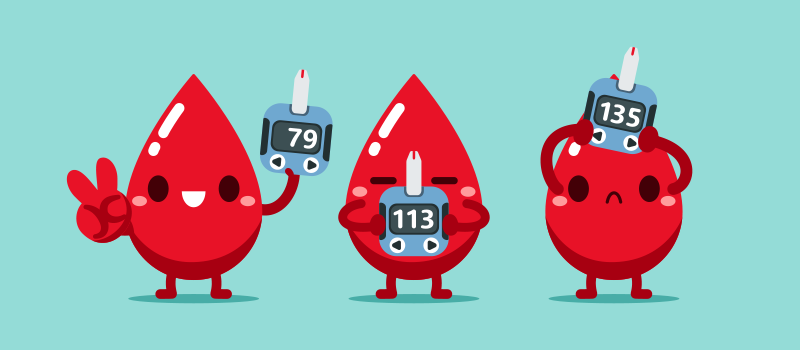
Carbohydrates are our body’s primary source of energy. An adequate intake of carbohydrates helps in building muscles, improving digestive health, and metabolizing fats, among others. It also influences heart health and blood sugar levels. Thus, the importance of carbohydrates cannot be denied.
Read on to know about the different types of carbohydrates and why they are important!
Technically, carbohydrates are compounds made up of carbon, hydrogen, and oxygen atoms. They are the major source of energy for your body and brain. Carbohydrates are present in varying amounts in different fruits, vegetables, grains, and dairy products. In terms of energy, carbs provide 4 kcal per gram. In India, there’s a high dependence on carbs; 70–80% of total dietary calories are derived from carbohydrates present in plant foods such as cereals, millets, and pulses.
What are the different Types of Carbohydrates?
Based on their chemical structure, carbohydrates can be classified as monosaccharides, disaccharides, and polysaccharides. Monosaccharides and disaccharides are commonly known as sugars. Some common dietary sources of sugars include glucose, fructose, sucrose, etc. On the other hand, polysaccharides are known as complex sugars, which, upon hydrolysis (chemical breakdown), produce monosaccharides and disaccharides. Dietary sources of complex sugars are starch and non-starch polysaccharides (dietary fiber).
Sugars
Monosaccharides and disaccharides are known as sugars. Sugars, also known as simple carbohydrates, are easily broken down by the body. The most common monosaccharides, which are the simplest forms of sugar (simple sugars), are glucose, fructose, and galactose.
Disaccharides, also called double sugars, are composed of two simple sugars linked to each other chemically (glycosidic linkage). The most common disaccharides are sucrose or table sugar (composed of glucose and fructose), lactose or milk sugar (composed of glucose and galactose), and maltose (composed of two glucose molecules).
Sugars are present naturally in foods such as fruits, milk, and milk products. They are also present in processed and refined sugar products such as candy, table sugar, syrups, and soft drinks.

Starch and Dietary Fibers
They are polysaccharides, which are composed of more than two simple sugars joined together chemically. Starch is the energy reserve for plants, whereas glycogen is the energy reserve for humans and animals. Starch is the most common carbohydrate in human diets and is present in large amounts in staple foods like potatoes, wheat, maize (corn), and rice.
Non-starch polysaccharides, popularly known as dietary fibers, are present naturally in plants. Dietary fiber provides structure in plant cell walls. It is present in many plant foods, including fruits, vegetables, legumes, and whole grains. Dietary fibers are basically carbohydrates, which our body cannot digest.

So why should we even Consume Dietary Fibers?
That is because these non-digestible polysaccharides pass through your stomach and small intestine intact. This stimulates strong bowel movements, clearing constipation, and improving digestion.
Oligosaccharides are another class of carbohydrates that consists of 3–10 bonded simple sugars, or monosaccharides. Dietary oligosaccharides are of two types: GOS (galacto-oligosaccharides) and FOS (fructo-oligosaccharides). GOS and FOS are prebiotics, i.e., they induce the growth and activity of beneficial microorganisms in your gut, improving digestion.
FOS is often used as an alternative sweetener. FOS exhibits sweetness levels between 30 and 50% of sugar in commercially prepared syrups. It is also naturally present in certain fruits and vegetables, such as bananas, onions, chicory root, garlic, asparagus, and leeks. Some grains and cereals, such as wheat and barley, also contain FOS. GOS is naturally present in human milk. It is also produced commercially from lactose to relieve symptoms related to constipation.
Read more about dietary fibers here.
What are the Functions of Carbohydrates?
There are 4 major functions of carbohydrates:
Providing Energy
The primary role of carbohydrates is to supply energy to different cells in our body. Some cells, such as red blood cells, are only able to produce cellular energy from glucose. The brain is also highly sensitive to low blood glucose levels because it uses only glucose to produce energy and function.
About 70% of the glucose entering the body from digestion is redistributed (by the liver) back into the blood for use by other tissues. Furthermore, cellular respiration, or what we know as breathing, is a controlled burning of glucose versus an uncontrolled burning. Cellular respiration is a set of metabolic reactions that help break down the glucose present in foods to produce energy for the body.

Storing Energy and Regulating Blood Sugar
If the body already has enough energy to support its functions, the excess glucose is not converted to produce energy. It is stored as glycogen in the muscle and liver. The structure of glycogen is such that it enables its rapid mobilization into free glucose to power cells whenever required.
Heavy exercise reduces the glycogen reserves of muscles. The liver can also store glucose energy as glycogen. But, in contrast to muscle tissue, it will utilize its glycogen reserve for other tissues in the body when blood glucose is low. As a result, this helps the liver maintain your blood glucose (blood sugar) levels within an optimum range between meal times.

Sparing the Use of Proteins for Energy
If there is not enough glucose to meet the body’s needs, glucose is synthesized from amino acids. As there is no storage molecule for amino acids, this process requires the destruction of proteins, primarily from muscle tissues. Thus, the presence of adequate glucose basically prevents the breakdown of proteins.
Preventing Fatty Acid Breakdown and Ketosis
When blood glucose levels are high, the use of fatty acids as an energy source is prohibited. High blood glucose releases the hormone insulin, which prompts the cells to utilize glucose (instead of fatty acids) to produce energy. Adequate blood glucose levels also prevent ketosis, a metabolic condition resulting from an elevation of ketone bodies in the blood. A high level of ketone bodies in the blood can cause dehydration and change the chemical balance of your blood.
Thus, carbohydrates are an integral part of our diet as they support the most critical function: energy production. Without energy, no life processes or bodily functions would exist. Like any other nutrient, the consumption of carbohydrates should also be moderate. Having too much or too little can lead to health complications.
Dietary Recommendation
The National Institute of Nutrition recommends that a balanced diet should provide around 50 to 60 % of total calories from carbohydrates, preferably from complex carbohydrates. So, for a 2,000-calorie diet, 1,000 – 1,200 Calories should come from carbs.


.png)


